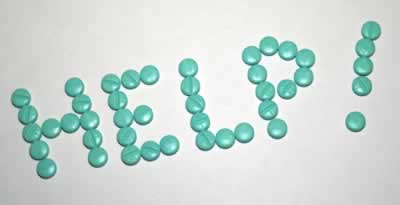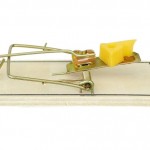
Contrary to popular belief, heartburn has nothing to do with the namesake’s organ. It actually has to do with the stomach area and its muscle ring called the lower oesophageal sphincter (LES). The LES usually closes as soon as food enters, but when this part doesn’t close or keeps opening, acid is produced and can reach all the way into the oesophagus. At this instance, that chest pain most people term as heartburn occurs.
If you experience heartburn for more than two days in a week, then it’s likely your symptoms of acid reflux indicate gastroesophageal reflux disease (GERD). Apart from the typical symptoms of heartburn, acid reflux disease is also caused by hiatal hernia. This stomach abnormality occurs when the LES and stomach move in the upper area of the diaphragm. As a result, acid is not contained in the stomach.
Heartburn isn’t the only symptom of acid reflux disease. Other symptoms range from burping, bloating, bloody vomiting, dysphagia, non-stop hiccups, sudden weight loss, and nausea. Dental erosion, dysphagia (difficulty in swallowing), chest pain, asthma, regurgitation, and hoarseness are also included among the symptoms of acid reflux
Symptoms of Acid Reflux – list
- Chest pains
- Increase in pain discomfort when lying down
- Pain after eating
- Bitter acidic taste
- Hoarseness
- Sore throat
- Chronic coughing
- Dental erosion
- Asthma
- Nausea
- Difficulty swallowing – (dysphagia)
Whilst this is not a comprehensive list of the symptoms of acid reflux it includes some of the most common associated side effects of excessive heartburn or reflux.
Acid Reflux Symptoms – Causes
Apart from hiatal hernia, symptoms of acid reflux can be caused by other lifestyle factors. These include obesity (being greatly overweight), eating large meals then lying down straight after, eating snacks before going to sleep – as this is when the symptoms of the condition can be at it’s worst (this is where a wedge pillow for reflux might help), eating spicy foods -chili and chili powder before bed or other foods to avoid such as chocolate, mint, garlic, onions, vinegar, black pepper, tomatoes, tomato juice, tomato sauce, ketchup etc. Pregnancy, drinking carbonated beverages or coffee, smoking, and blood pressure medications can also cause symptoms of reflux.
Causes – keypoints
- Pregnancy
- Hiatus hernia (hiatal hernia)
- Asthma
- Peptic ulcers
- Smoking
- Bending forward
- Alcohol
- Eating habits (diet)
Acid Reflux – Diagnosis
Several tests are made in case of severe symptoms of acid reflux. There’s the barium swallow or esophagram – a special x-ray that checks for a narrowing in the upper GI (gastrointestinal) tract which includes the esophagus & can include the stomach. To diagnose for problems, Barium sulfate is used which is a type of contrast medium that is opaque to X-rays. As the patient swallows the barium suspension, it coats the esophagus with a thin layer of the barium. This enables the hollow structure to be imaged.
Another test that checks your body’s esophagus function and lower esophageal sphincter is the esophageal manometry. Endoscopy also checks your esophagus but can also look into your stomach via a long, lighted tube entering your throat. pH monitoring can also be done to check your stomach’s acid levels.
Symptoms of Reflux – Life Changes
If you are regularly experiencing heartburn or acid reflux symptoms, then you may have to make several lifestyle changes. Expect to eat smaller meals within the day, to take naps during the day, stop smoking, and to stop wearing tight clothes. Obese or overweight individuals will have to take the necessary steps to lose weight. Eating will have to be done at least two hours before lying down or sleeping.
- Don’t overeat
- Eat slowly
- Don’t go to bed with a full stomach
- Avoid food & drink that could trigger reflux
- Wear loose fitting clothes
- Exercise regularly
- Stop smoking

Acid Reflux – Medications
Your doctor might also prescribe certain medications to ease the acid reflux. These prescription medicines can be Prokinetics like Reglan or Urecholine to help empty the somach or H2 blockers like Zantac or Pepcid to lessen the stomach acid production. Proton pump inhibitors like Aciphex and Nexium are also prescribed to reduce the acid made by your stomach. Foaming agents like Gaviscon can also be taken to avoid future acid reflux occurrences. Be sure to take these prescriptions according to the doctor’s orders and not to take them simultaneously. Given the respective effects of each medicine, having them work at the same time will probably end up making the situation worse, so a consultation with a medical professional is advisable before taking any combination of prescribed & non-prescribed medication.
Medication key points
- Antiacids
- Prokeinetic agents
- Proton pump inhibitors
- Acid suppressants
Do you have a symptom of reflux that is not on the list?
Let us know by using the comment box below!
If you like the article why not share it with your friends using the buttons on the left hand side, thanks!
About Creating Comforts
Did you know ...that in a 2009 Norwegian study the number of people who report living with the symptoms of acid reflux more than once a week increased from 31% to 40% by the end of the study!












